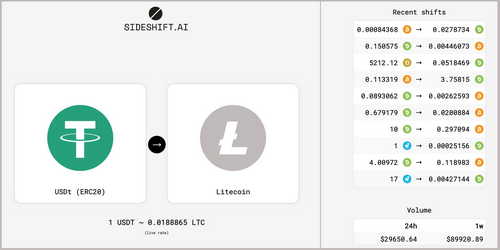The scheme successfully brought in $1.6 million, the CFTC claimed, and even managed to get Compcoin listed – temporarily – on digital asset exchanges during its sale from 2016 through 2018. Success was short lived.
The Commodity Futures Trading Commission (CFTC) has charged a self-claimed Florida financial adviser and his company with fraud for allegedly duping investors in his algorithmically charged “Compcoin” token out of $1.6 million.
Alan Friedland and his company “Fintech Investment Group, Inc.” allegedly marketed Compcoin as the key to a proprietary foreign exchange trading software, ART. This algorithm was said to predict dollar-to-euro forex trades with pinpoint accuracy and yield high returns, the complaint said. Cryptocurrency gave investors access and hundreds of investors jumped in.
“In eight years of controlled lab testing, Compcoin delivered an average 10% quarterly return on investment (ROI) – much higher than the ROI of most retail and institutional forex traders”, promised the white paper.
As alleged by the CFTC, none of the investors got what they paid for. According to the complaint, the man and the company that they paid were not approved to market access to a forex algorithm at all. The National Futures Association (NFA) never approved Fintech’s Compcoin disclosure statements, according to the complaint.
Additionally, on April 2 the NFA issued a complaint against Friedland and his company for «failure to cooperate» in NFA’s investigation of Compcoin.
“Instead of gaining access to ART’s high success rate at predicting USD/EUR forex trades and high rate of return from the trades as promised, purchasers of Compcoin were left with a valueless asset”, the CFTC complaint alleges.

“The CFTC remains committed to protecting market participants from fraudulent schemes, including novel forms of fraud like the one alleged here, where defendants allegedly solicited customers to purchase a digital asset in order to gain access to Fintech’s purported forex trading algorithm”, CFTC Director of Enforcement James McDonald said in a press release.
CFTC Claims ‘Massive Fraudulent’ Scheme Defrauded Investors of $20M
According to a press release, Miami resident Daniel Fingerhut; Israeli nationals Tal Valariola and Itay Barak; and the latter two’s companies Digital Platinum Limited, Digital Platinum Inc. and Huf Mediya conducted a five-year-long trading scheme, promising investors massive profits without actually delivering between 2013 and 2018. The alleged fraud took place in two phases, with the first offering binary options services and the second involving digital assets like bitcoin and ethereum.
The CFTC named a number of other entities and individuals it claims are affiliated with the defendants.
«The fraudulent solicitations promised free access to automated trading software that purported to trade digital assets on behalf of customers automatically with no risk and guaranteed profits (‘DA Trading Systems’),» the complaint said.
The digital asset phase allegedly took place between 2016 and 2018 (the cryptocurrency bull market, which saw bitcoin’s price rise to nearly $20,000, occurred in late 2017).
According to the complaint, Fingerhut sent automated emails with links to potential victims, directing them to brokers if they clicked on the links and signed up. The victims would pay the brokers a deposit, and the defendants would receive a commission.
Nearly 60,000 customers «opened and funded trading accounts,» sending more than $20 million in commissions to the defendants, the CFTC alleged. The agency is seeking full restitution, though it warned that the defendants might not have sufficient funds to pay back its investors.
In its complaint, the CFTC claimed Fingerhut initially mislead the agency’s staffers after agreeing to cooperate in 2018.


